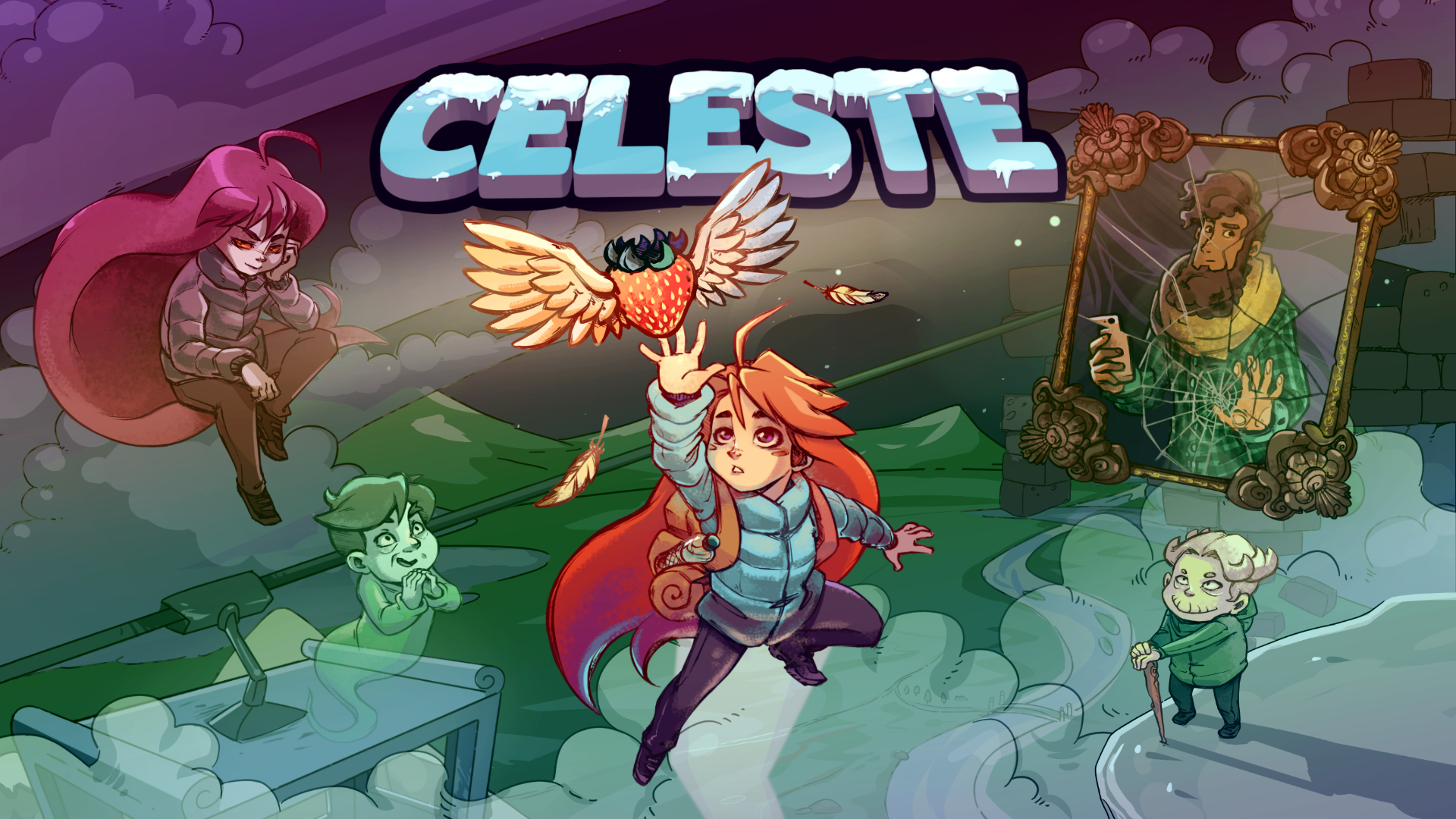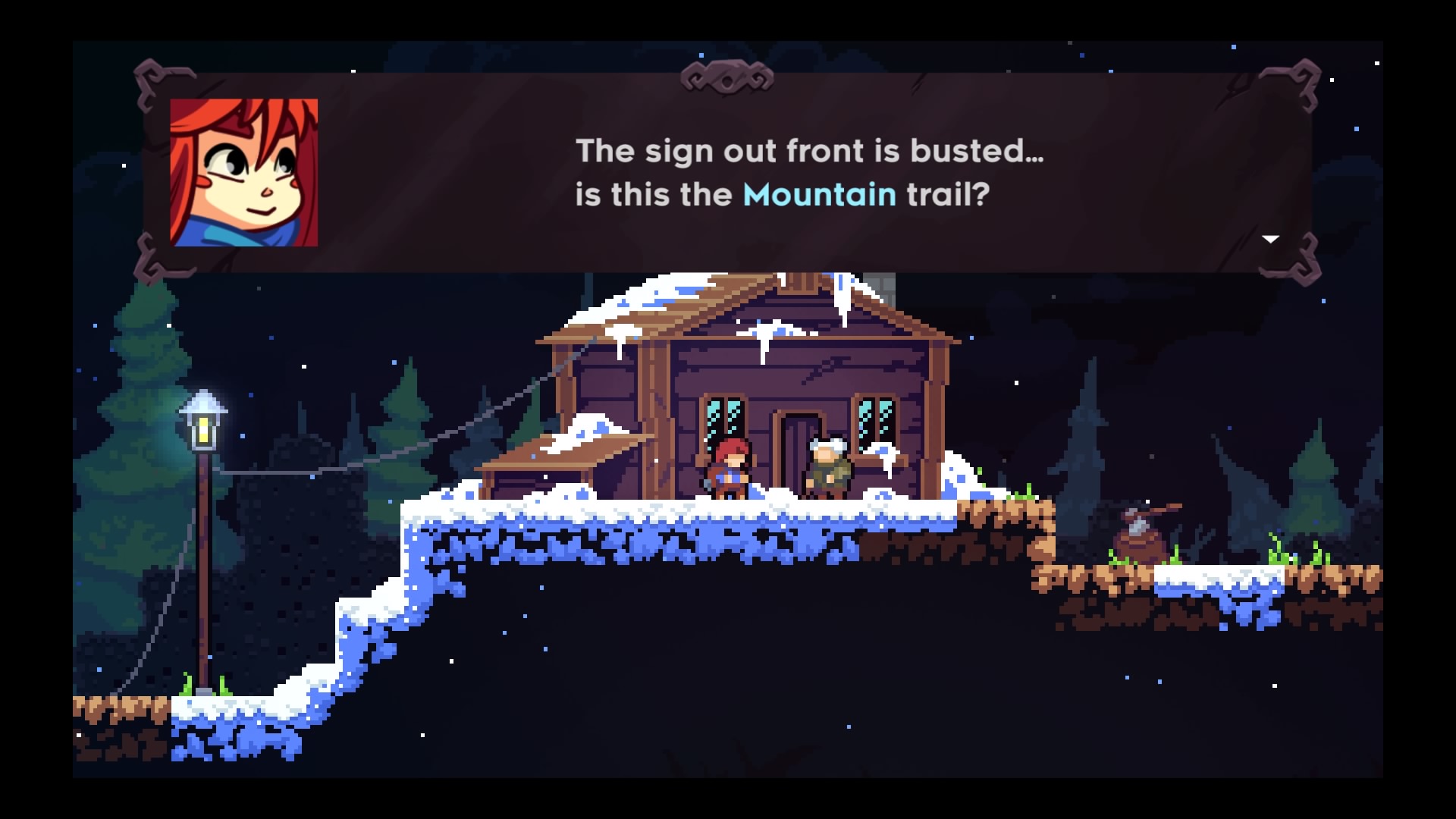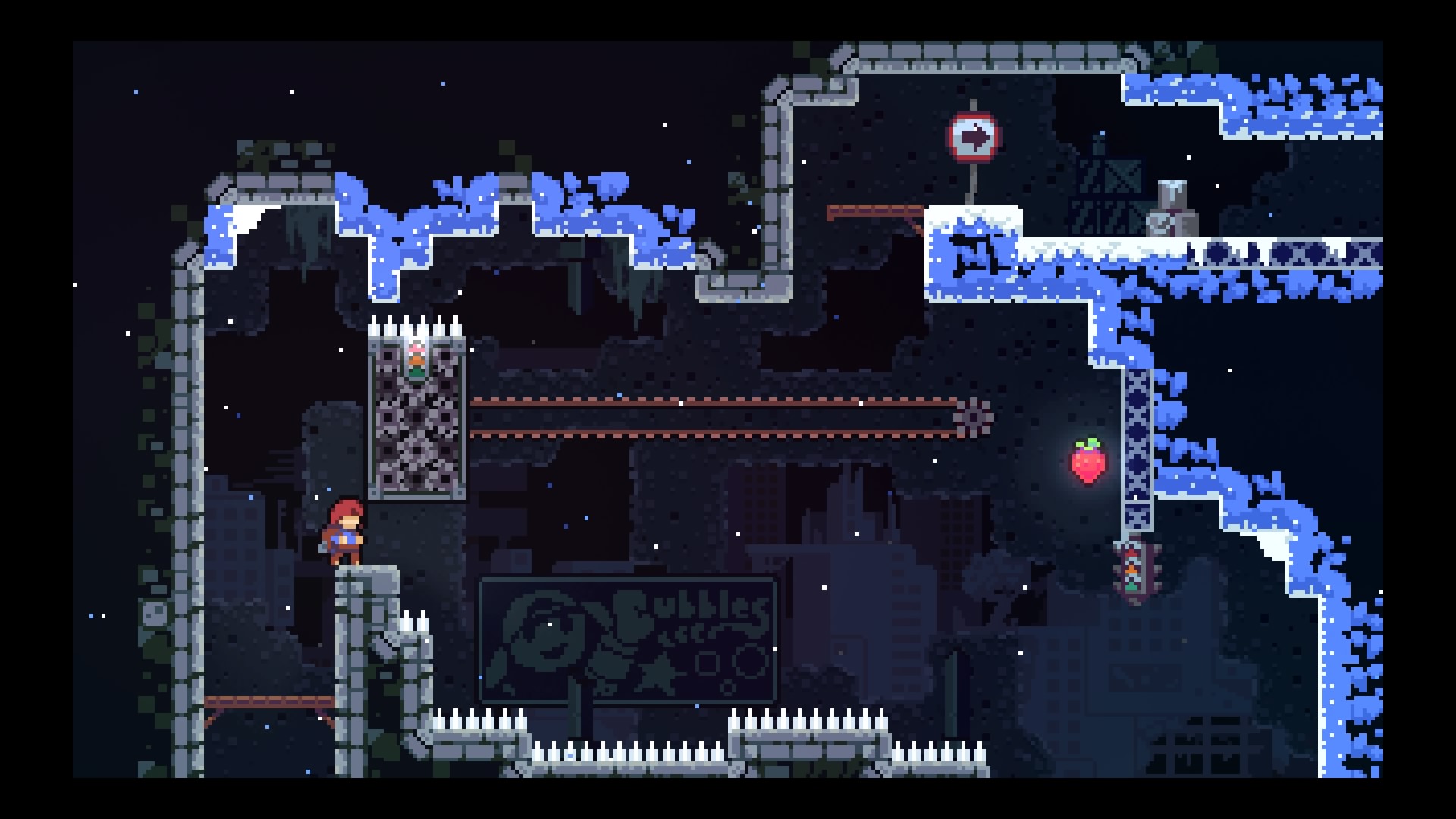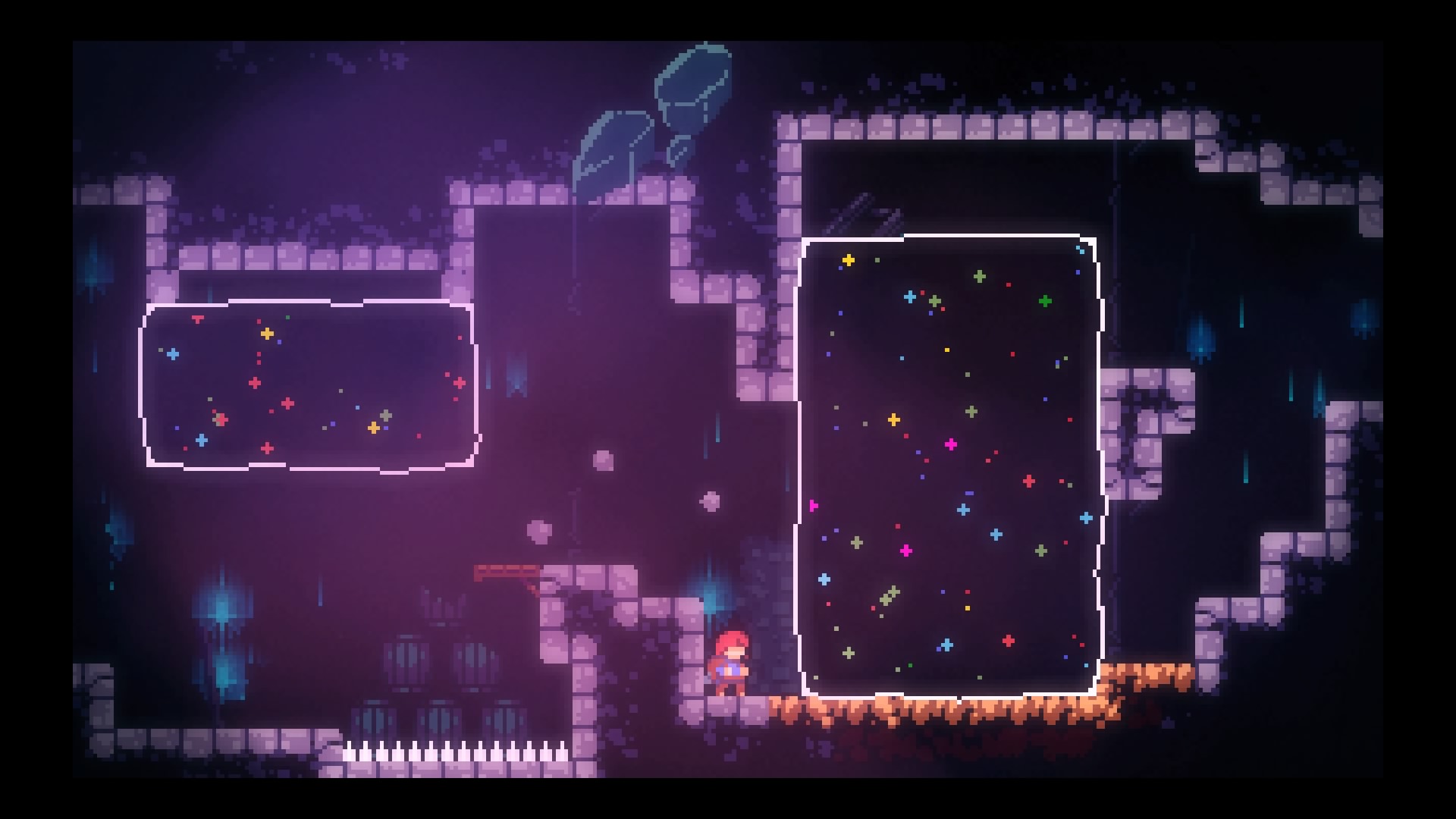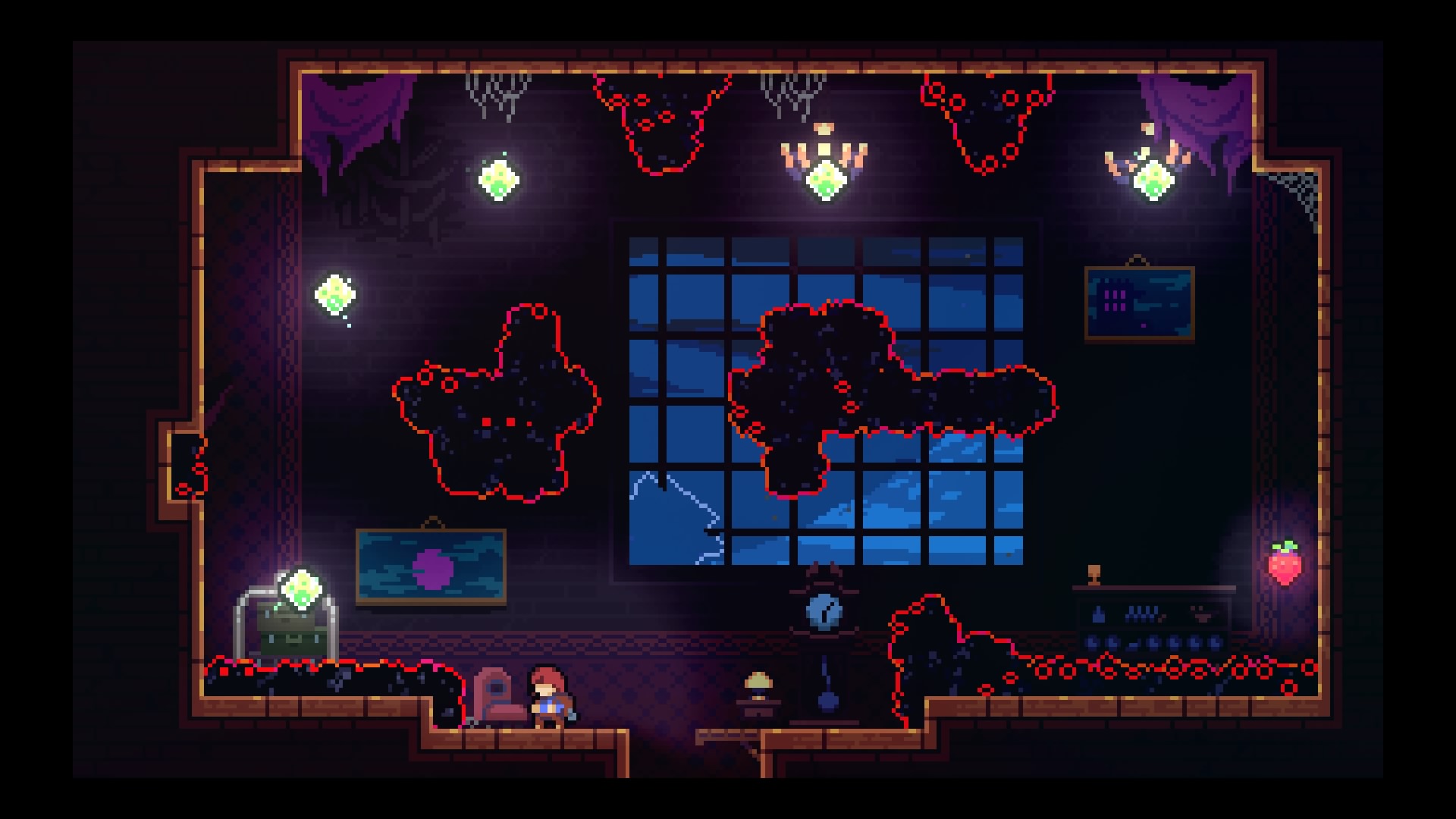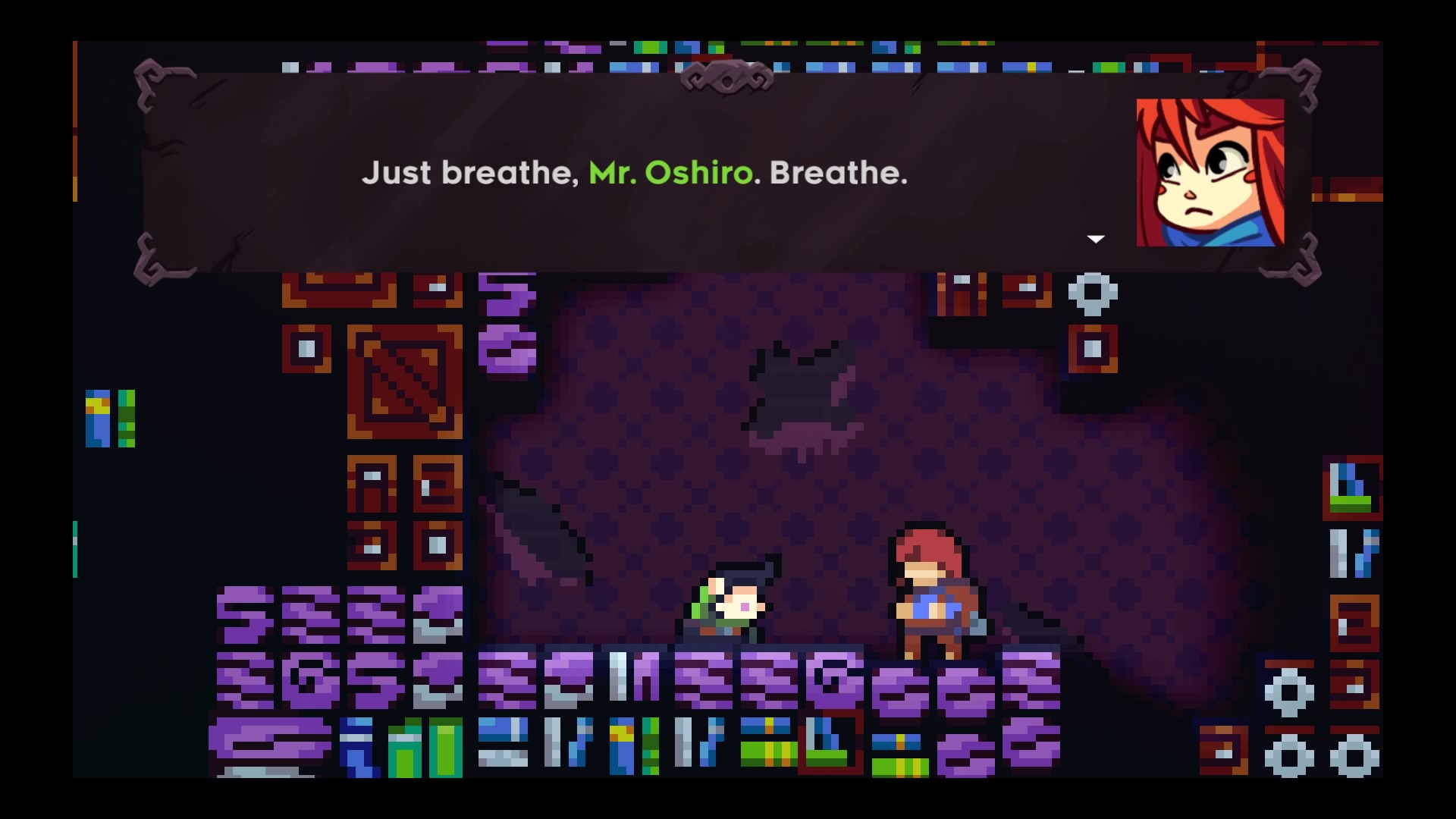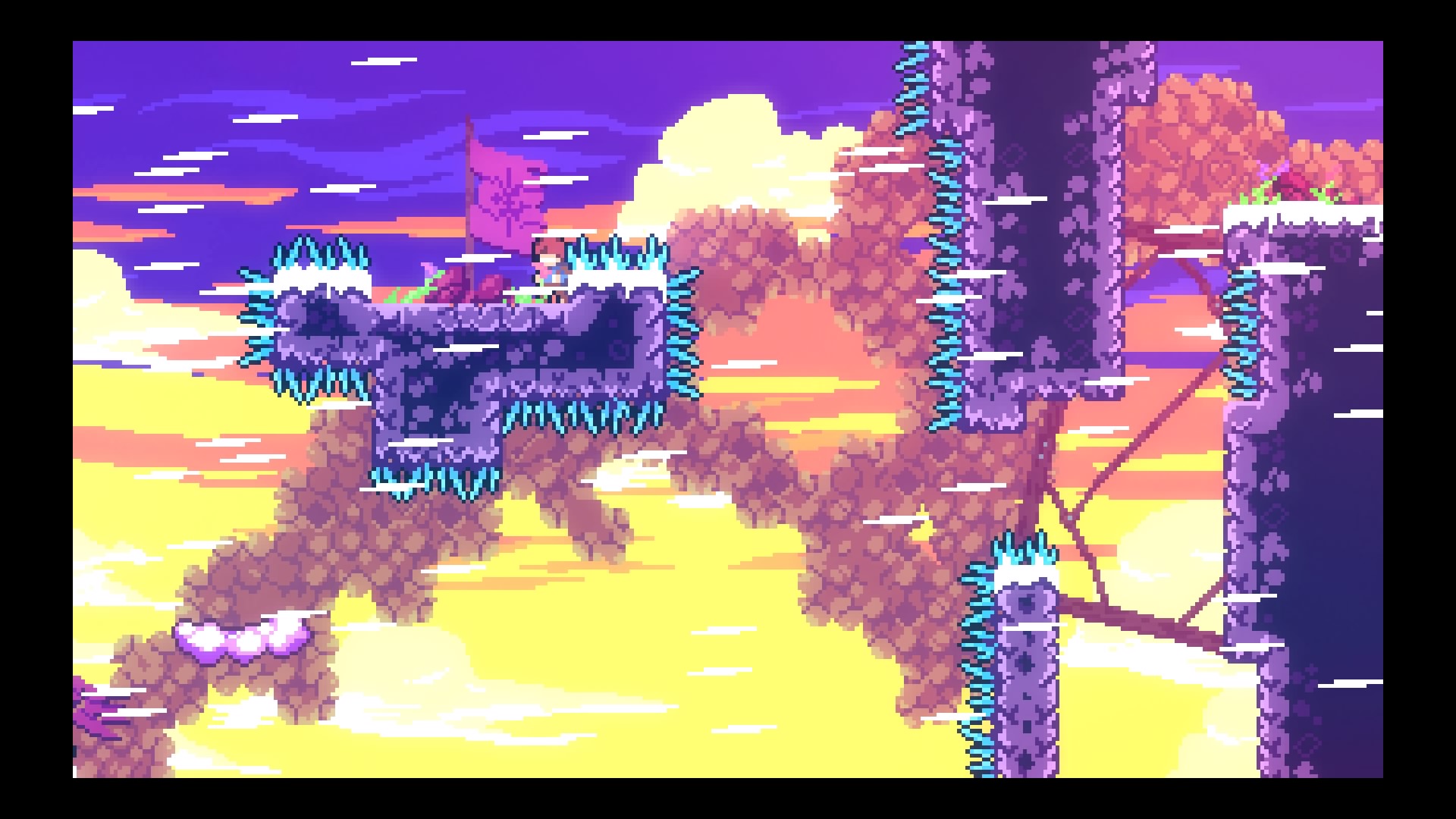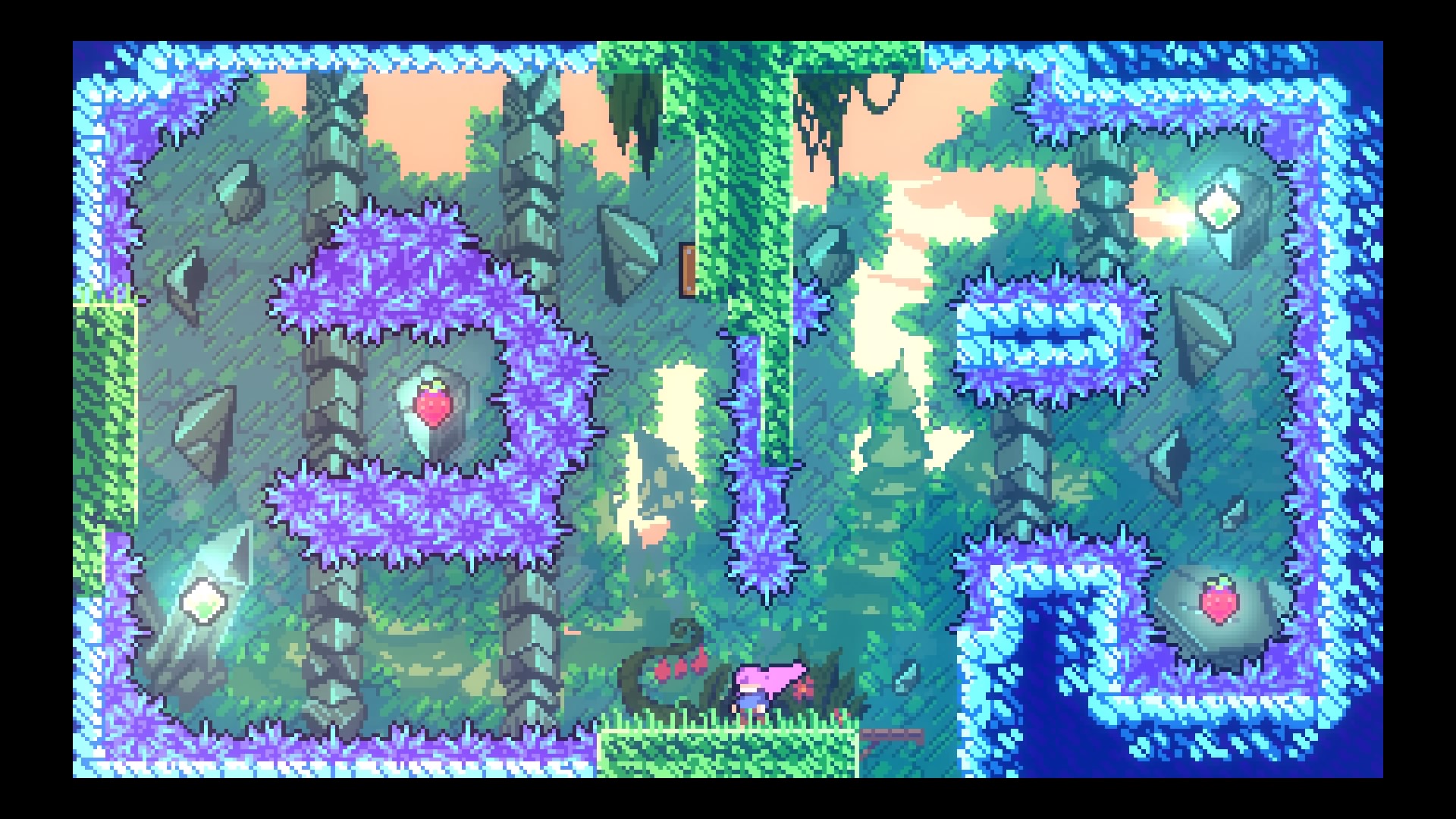Celeste
/At the 2018 Game Developer’s Conference in San Francisco, I had the pleasure of sitting down to a short session of Celeste. This platformer, by independent developer Matt Makes Games, seemed cute at first glance, with its charmingly cartoonish character frames and beautiful, pixelated art style, and I had heard rumors about its ability to inspire positivity and perseverance in others, specifically the depressed and suicidal. That’s a tall order, I thought, and I love great narratives, so why not check it out? In my short half-hour with the game on the expo floor, I jammed through the first few levels, which I found intensely fun and reasonably challenging. I enjoyed it enough that I knew I needed to play it, so once back home in Hawai'i, I did.
Celeste is a precise platformer that requires surgical timing, lightning reflexes, and astute analysis and planning. It’s a type of game that I don’t really play anymore, because I’m an adult with a job and lots of hobbies. Writing’s hard enough, why torture myself with an ultra-precise challenge like Celeste? Learning to make pixel-perfect jumps over chasms and between obstacles doesn’t really appeal to me. I promised myself I’d finish it though, to discover what the deal is with this profound effect it has on its players. I was pleasantly surprised to find that Celeste indeed contains a meaningful narrative that is reinforced and informed by its gameplay, and though the experience taxed me in ways only my writing usually does, I was inspired to persevere. And that’s an experience that can inform our daily lives.
In Celeste, players jump from platform to platform, the general goal to reach point B from point A. The unique spin on that formula is that players can dash in any direction as well as grip walls for climbing. This changes how we perceive the landscape because there are far more possibilities. With this foundation, each level layers on more depth or challenge by adding moving or temporary platforms, movement-limiting winds, and additional midair dash mechanisms. Respawn points are frequent, so death is encouraged as a learning mechanism and even tracked by a counter for each level. This leads to plenty of exciting moments of discovery, followed by tons of failed attempts at precision, until you finally get that one move right. The game is challenging, but delivers its difficulty one snippet at a time, and this allows the deviously ingenious design to be incredibly fun and rewarding.
With that said, Celeste pushed me in ways many of the games I play don’t. After the first few levels, the precision the game requires ramps up, and I started to have a hard time. Towards the end of the game, that precision tested my ability, patience, and oftentimes, my civility. Expletives and middle fingers sprouted from me like rampant weeds until I could frustratingly admit to myself that I needed a break. This might sound bad, but I was always excited to get back to whatever section I was stuck on with a fresh perspective and positive attitude. The process of encountering a seemingly insurmountable challenge, succumbing to overwhelming failure, and then bouncing back with renewed zeal and persistence is the whole point of Celeste, and its well-written main character emphasizes this.
Threaded within all the jumps, spikes, and near-death landings is a narrative about a girl creating her own inner peace. The girl, who we discover early in the game is running from some heavy internal issues, is forced to deal with her baggage by the magical properties of the mountain Celeste. The mountain manifests these internal issues as external aggressors, like an “evil” version of the main character, demanding that our hero unpack those bags and take a closer look at what she’s lugging around. As I played, pushing myself to overcome the obstacles before me, I felt intense empathy; I could feel her overwhelming sense of defeat and the tantalizing desire to quit. It was easy to put myself in her shoes and reflect on my own obstacles, whether in the game or in my life. This is what good writing is supposed to do. I even renamed the character (a smart design decision), which made me feel like the game was speaking directly to me. I felt the girl’s crushing doubt and insecurity as well as her hopeful persistence and determination.
Matt Makes Games could have easily delivered Celeste without the narrative and character, and it would have been a fun, challenging, expertly crafted platforming experience. Celeste is more, with its writing and design meshed together in such a way that one cannot be divorced from the other, therefore exploring its subject matter sensitively, personally, and with depth. The experience lingers long after the credits roll. Even writing this article, as I got frustrated with a section or felt something wasn't good enough (and never would be), I'd remind myself to breathe for a moment, to take a short break or push through a block, that I'm not perfect and that's okay. Celeste reminds me that I'm a work in progress, that progress requires effort and patience, and that if I find something incredibly hard, I can overcome it.
Marmoset's Brew: Peyote. It's a deep dive, you're going to see some stuff, and you're going to come out changed for the better.


